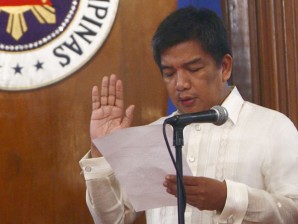“My friend, we have to fix this, we have to achieve something here.”
This was the personal instructions that President Benigno Aquino III gave Mujiv Hataman when the President told the former party-list member last November 29 that he had been chosen to become officer-in-charge of the Autonomous Region in Muslim Mindanao (ARMM).
“I took it to mean that somebody should go to jail for the corruption and violence that have tainted our home region. That governance reforms should be deeply entrenched during my watch,” said Hataman, speaking in a mixture of English and Filipino.
Hataman said that as the head of the country’s poorest region with one of the most corrupt local bureaucracies, he planned to raise the bar of public service and establish the governance standards for the next elected governors starting in May 2013.
Big challenge
He said that while he saw his appointment as a big challenge, he felt his burden was made lighter by having a President who truly embodied “genuine reforms.”
“My job to stamp out corruption and violence is made easier by having an honest and sincere President behind me. No ARMM governor will succeed in reforming the region without a national leader who is truly committed to change,” said Hataman.
Hataman said he planned to bring back trust and confidence in the ARMM administration by targeting “zero corruption” in the deployment of billions of pesos of funds to the region.
The Aquino administration is pouring P8.59 billion into ARMM through a transition and investment support plan to fast-track economic development under the caretaker government, on top of the P1 billion in state funds allocated annually for infrastructure spending.
“We want to change ARMM’s image as a hotbed of corruption. We want to make sure that all these funds are spent properly without graft,” said Hataman.
In tandem with the elimination of corruption in the construction of roads and bridges that has been the focus of media attention, Hataman also wants to cut down the region’s bloated bureaucracy.
At least 80 percent of the region’s annual budget of P12 billion a year go to the salaries and wages of government employees.
